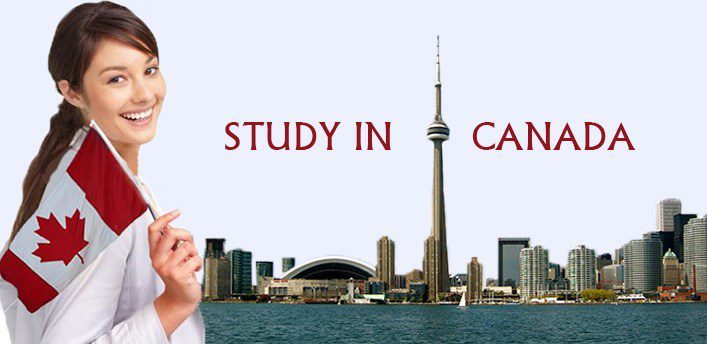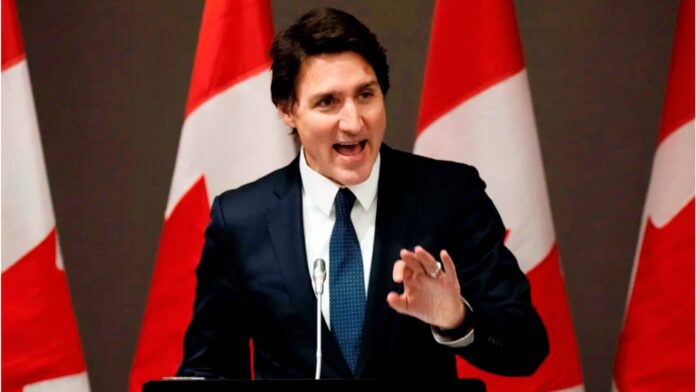In 2022, more than 800,000 international students were studying in Canada; estimates suggest the number could increase to more than 900,000 by 2023. Citing concerns over a permissive designated learning institution (DLI) structure, Minister Miller has highlighted the need to control the system and advocated for meaningful conversations between provincial governments and D.L.I.s.
Additional modifications to the international student program were made by I.R.C.C. in December, which included tripling the cost-of-living criterion. Furthermore, for the 2024 academic year, a Trusted Framework Agreement with D.L.I.s is anticipated to be in place, guaranteeing accelerated study permit processing at qualified universities.
The I.R.C.C. has announced changes to the requirements for Post Graduation Work Permit (P.G.W.P.) eligibility and the caps on study permits. International students participating in study programs covered by curriculum licensing agreements will no longer be eligible for the P.G.W.P. as of September 2024. This ruling addresses oversight concerns in private colleges as opposed to public ones. Read on to know more about this policy and how to adjust your plans to adapt to the new changes.
How The Limit on Foreign Student Admissions Would Be Implemented
This two-year temporary policy caps the number of international students. Renewals or holders of valid study permits will not be impacted. Furthermore, students seeking master’s and doctoral degrees are excluded.
The cap will be implemented as follows:
- Provincial Quotas: Each province has been given a cap according to its capability for housing and accommodations.
- Institutional Distribution: The number of admitted international students will then be divided among the participating institutions by the provinces.
- Attestation: An attestation letter from a Canadian province or territory is now required as part of the revised documentation requirements for student permits. This letter attests to the province’s ability to take in the suggested student.
- Date of Effectiveness: January 22, 2024, is when this regulation goes into effect.
- Implementation Deadline: Provinces must set up a system to provide the necessary attestation certificate by March 31, 2024.
- Work permits and graduate programs: The Canadian government will review the cap in 2025. There are some notable changes, even though the majority do not apply to graduate, professional, or doctorate programs:
- Postgraduate Work Permit: The Postgraduate Work Permit will no longer be available to international students admitted under a curriculum licensing arrangement.
- Spousal Open Work Permits: Effective immediately, spouses of international students enrolled in master’s or doctorate programs will be the only recipients of open work permits. Undergraduate and graduate students’ spouses will no longer be qualified.
- Increasing Requirement for Cost of Living: In December, Immigration, Refugees and Citizenship Canada (I.R.C.C.) increased the required amount for international students’ cost of living by double, from CAD 10,000 to CAD 20,635. Based on the government’s citation of growing inflation and the financial difficulties encountered by numerous international students, this modification is intended better to equip students for Canada’s actual cost of living.
What Possibly Lead To The Limit on Foreign Student Admissions

Following Canadian Prime Minister Justin Trudeau’s assertion that his government has “credible allegations” of India’s participation in the June execution of Khalistani terrorist Hardeep Singh Nijjar on Canadian soil, a diplomatic spat broke out between India and Canada.
The conflict widened when a U.S. ambassador said that Mr. Trudeau’s claim on the involvement of Indian operatives in the killing was the result of “shared intelligence among Five Eyes partners.”
After the diplomatic spat, fewer Indian students applied to Canadian universities. “Our relationship with India has really halved our ability to process a lot of applications from India,” Mr. Miller said.
As expected, Canada’s response to the dire housing crisis has impacted the number of international students admitted. In response to political pressure regarding housing shortages, Canadian Immigration Minister Marc Miller made remarks in October that were later followed by the Justin Trudeau administration’s announcement on Monday of a 35% cut in international student applications for 2024.
As a result, 360,000 study permits have been approved, down from over 900,000 in 2023. These caps will not impact those who already have study permits or are applying to renew their permits. Pursuits for master’s and doctorate degrees are similarly free from these restrictions.
An attestation letter from the pertinent province or territory (P.T.) will be required for all study visa applications submitted to the I.R.C.C. starting January 22, 2024. By March 31, 2024, P.T.s must set up the procedure for sending these letters. The I.R.C.C. has stated that it plans to review the quota in 2025.
Modifications to Graduate Work Permits
Canada boosts the amount required to be eligible for a student visa but won’t offer assistance for work permits.
A beneficial modification has also been made by the I.R.C.C., enabling graduates of master’s and other short graduate-level studies to apply for a three-year work permit. This modification is essential because it resolves the constraint that master’s students encounter with the existing standards, which link the P.G.W.P. duration to the study program’s duration.
More information about open work permits for international students’ spouses will be made available by the I.R.C.C. in the upcoming weeks. Interestingly, wives of international students enrolled in master’s and doctorate degrees will be the only ones eligible for these open work permits; those enrolled in lower levels of education will not be eligible.
Implication Of The Limit on Foreign Student Admissions
International student study visa issuance has been temporarily capped by Immigration, Refugees and Citizenship Canada (I.R.C.C.). As per the data disclosed by the I.R.C.C., it is projected that the cap for 2024 will result in roughly 360,000 authorized study permits, representing a 35% reduction from the 2023 estimates.
We are unveiling new safeguards today to guard against abuse of a system that has grown so profitable that it has become vulnerable. It’s enough. We are striking the correct balance for Canada and safeguarding the integrity of our immigration system while preparing students for the success they aspire to through the decisive measures we announced today,” Miller continued.
Every province and territory will have caps put in place by I.R.C.C., which will be commensurate with the population in each area. This calculated action seeks to counteract the notable increase in international students in provinces where the development has been judged unsustainable.
A temporary cap on new international student visas and admissions will be implemented, commencing September 1, 2024, according to Immigration, Refugees and Citizenship Canada (I.R.C.C.). The declaration was made in reaction to Canada’s rapidly rising housing market prices and record-breaking surge in temporary residents.
The interim two-year cap aims to reduce the number of new study visas issued in Canada by an overall 35 per cent. Based on population size, the federal government will allot a set number of study licenses to each province; the provinces will then distribute the allotted quota among approved schools.
Additionally, the International Relations and Cooperation Commission (I.R.C.C.) has declared that it will no longer grant postgraduate work permits to foreign graduates of Public College-Private Partnership programs. Open work permits will only be given to suitable accompanying partners of international students enrolled in professional programs or graduate institutions.
You may also like: Canada’s Humber College Scholarship is now open for Applications
Highlights On The Limit on Foreign Student Admissions

The Limit on Foreign Student Admissions highlights are as follows:
- Canada intends to limit the quantity of fresh study permits granted to international scholars.
- The cap is temporary and will be in place for 2024 and 2025.
- According to Canadian immigration officials, the cap will cause the number of new study permits awarded in 2024 to drop by 35% from levels in 2023.
- Along with the cap, the government said today that students participating in programs offered through public-private partnerships will no longer be qualified for postgraduate work permits as of September 1, 2024.
- The government is also planning to restrict the number of open work licenses spouses of international students can obtain.
- On the other hand, students who finish their graduate studies in Canada will soon have the opportunity to apply for a three-year postgraduate work visa, expanding their post-graduation job rights.
The I.R.C.C. notes that “the Government of Canada will continue to work with provinces and territories, designated learning institutions, and national education stakeholders on developing a sustainable path forward for international students, including finalizing a recognized institution framework, determining long-term sustainable levels of international students, and ensuring post-secondary institutions can provide adequate levels of student housing.” The cap will be in place for two years, and the number of new study permit applications issued in 2025 will be assessed at the end of 2024.
How The Limit on Foreign Student Admissions Would Change Work Eligibility in the Future.
Minister Miller also announced that effective September 1, 2018, students enrolled in programs delivered through public-private partnerships will no longer be eligible for postgraduate work permits. This model is prevalent in Ontario, where enrollment by international students in programs offered through public-private partnerships or licensing arrangements has increased dramatically in recent years.
“In the coming weeks, we will be announcing that open work permits will only be allowed and be available to spouses of international students enrolled in master’s and doctoral programs as well as those enrolled in professional programs, such as medicine and law,” the Minister said, capping off his remarks for today. The eligibility of spouses of students enrolled in undergraduate and college programs and those in other levels of education for work permits will be discontinued.
Read also: 10 best train trips in Canada
The government is also working to provide graduate students more post-study employment privileges, stating that “Master’s and other short graduate-level program graduates will soon be eligible to apply for a three-year work permit.” The existing regulations restrict master’s graduates’ ability to obtain work experience and maybe move toward permanent residency by basing a post-graduation work permit’s duration only on the duration of the individual’s academic program.”
What You Should Take Out
- Caps will be population-weighted.
- Caps won’t affect those who currently have study permits.
- A province or territory’s attestation letter is required for each application for a study permit.


